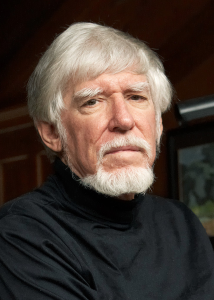The chief architect of founding Sandy Springs as a largely outsourced government has revealed his even more ambitious privatization plan: helping to create a new Caribbean island “city-state” called Próspera.
Inspired by such independent cities as Hong Kong and Singapore, Próspera is rising on the island of Roatán in Honduras, with funding from a venture capital firm and oversight by a corporate-appointed council that signs contracts with all residents and businesses. Oliver Porter got involved because of his role in the founding of Sandy Springs and now sits on the council.
“They looked to Sandy Springs as the basis for how they would run the city, by contract,” said Porter in a phone interview, adding that “…you would be surprised at Sandy Springs’ international reputation. We’re known all over the world. … We have a better reputation around the world than we have here.”
The founding company is Washington, D.C.-based NeWay Capital, which did not respond to a comment request. Porter said NeWay is the first company authorized to establish such a city under Honduras’s recently established program of Zones of Economic Development and Employment, or ZEDEs.
“We’re the only one that has been authorized to do it,” Porter said. “And they are basically zones within the country that are virtually autonomous, but they are still Honduran, and we have to emphasize that. We’re not actually a separate country. But it has many attributes that are country-like, such as our own laws, our own taxation, customs agreements. Our own property registry. It goes on and on.”
At its 2005 founding, Sandy Springs drew international media attention for a “public-private partnership” model of subcontracting almost all city services besides the police department. Because the new city had only months to start operations under state law, hiring a private company to run everything was a start-up necessity, but the city attempted to make it a long-term virtue with the idea it would be more efficient. The model, which Porter advocated and directed as the first interim city manager, was particularly influential on other cities that incorporated in its wake, such as Brookhaven and Dunwoody.
Last year, Sandy Springs made a dramatic turnaround in the model, bringing almost all services in-house instead, citing higher costs from private contractors. While Mayor Rusty Paul said the decision would be reviewed in a year and was likely temporary, the city has stuck with the in-house model into the pandemic crisis.
Próspera — whose name means “prosperous” — is a pilot program in what Porter said NeWay hopes is a new field of worldwide “contract cities” operating on an even more thorough privatization model than Sandy Springs.
“This is a contract city,” said Porter. “Every individual citizen or resident and every business will have an individual contract with us. It will not be a typical city run by government bureaucracy.” An arbitration panel would decide most disputes between citizens and the government.
As a selling point, Próspera offers “the lowest taxation in the developed world” — 7.5% or less in combined property, income and sales taxes, Porter said. And it will attempt to minimize regulation while avoiding a “wild West scene,” he said. “We’re saying to businesses, if you want low taxation and you want good regulation, we’re the place to go.”
When ZEDEs were first proposed several years ago, the concept drew criticism and concerns from some environmental and human rights organizations, which cited concerns about transparency, regulation and accountability of such private cities. Porter said he believes such criticisms are unfounded, as citizens would still have access to Honduran criminal and civil courts and the council’s actions would be public record. The Próspera ZEDE includes a provision of transitioning to a publicly elected government when the population density reaches a certain level, he said.
The founders already are working with neighboring residents on the island to provide new water service and a community center, to “be involved with the community, not to take it over,” he said.
For now, Próspera is physically small, starting with 60 undeveloped and unpopulated acres, plus another small parcel nearby, though it is attempting to acquire much more land, including a nearby resort.
Investors will make money through the built-out of the mixed-use city. Porter said there are about 60 commitments for single-family homes, and highrise apartments and condominiums are planned as well. A university and a medical clinic have committed to joining the project, he said. The concept is to expand on the business side with “clean industries” like medical research, finance and technology, he said.
Porter said that he and his family might make a second home in Próspera, but he will remain a resident of Sandy Springs.


